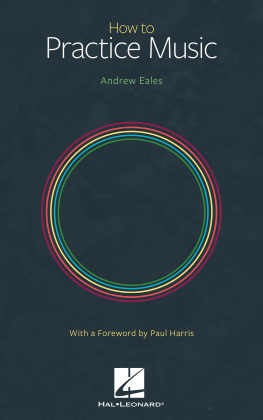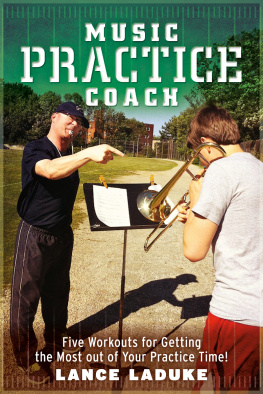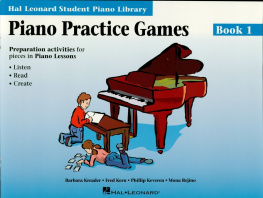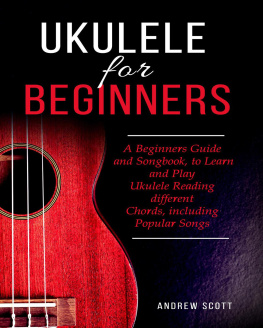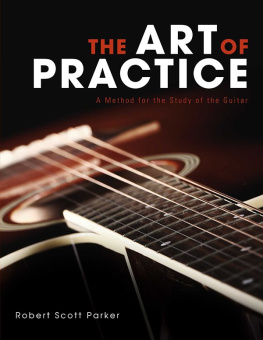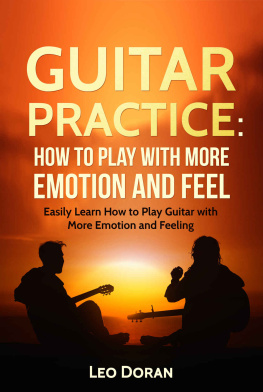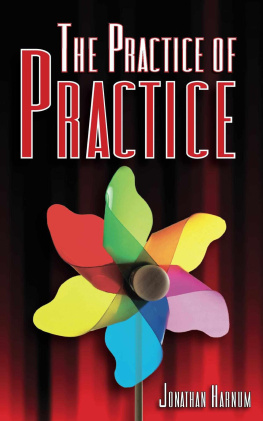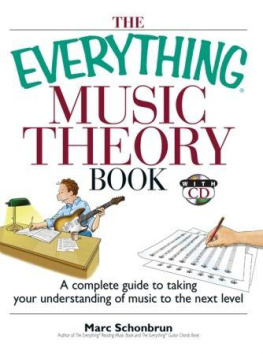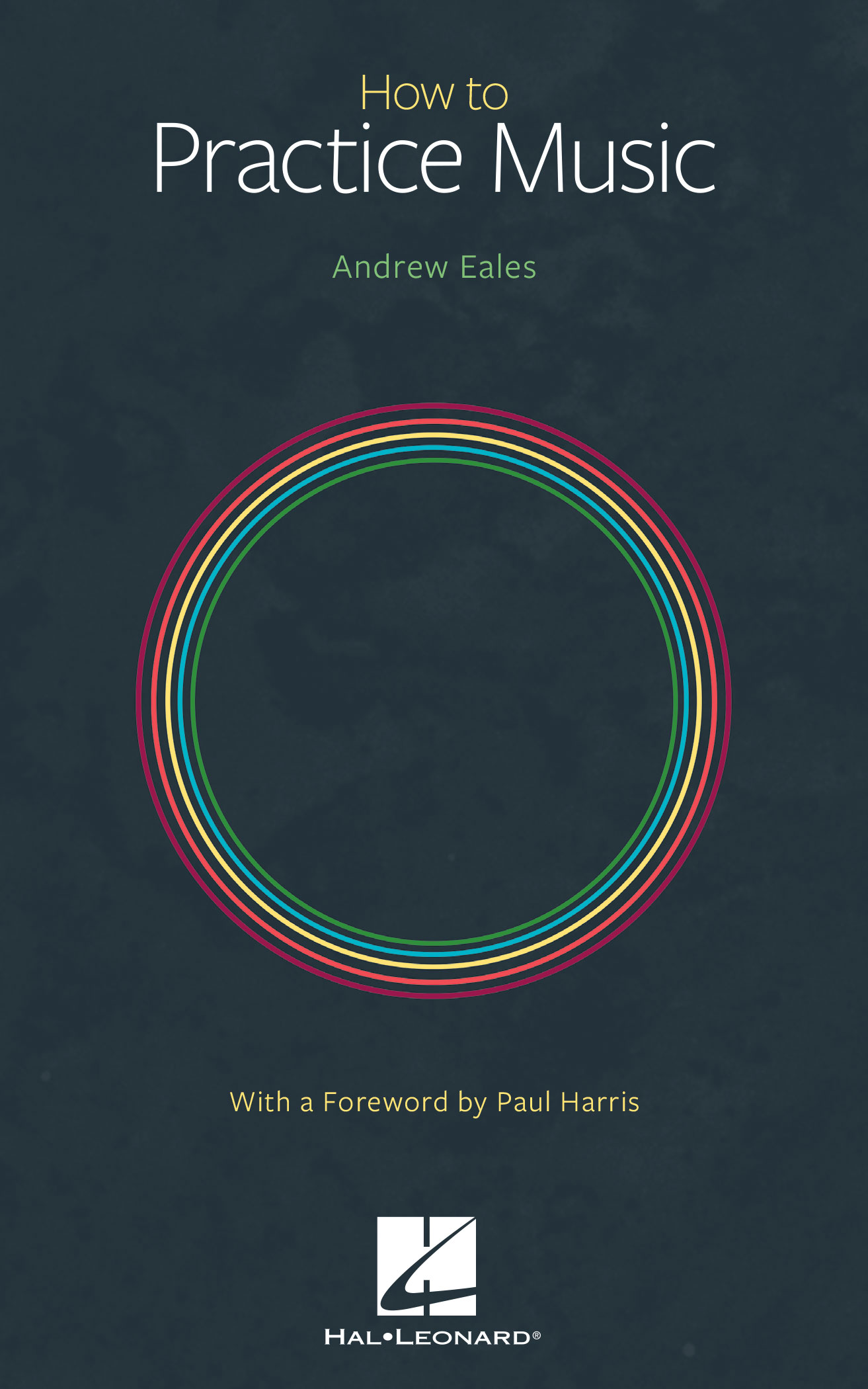Perhaps this is a rather odd question. But it is one well worth thinking about before we go further. Pressed for an answer, some will suggest that music comes from the instrument. But that somewhat diminishes the importance of both player and practice. Going further, others will offer that music comes from their movements, fingers, mouth, or breath. Digging still deeper, they might suggest that music comes "from the heart." We could even conclude that music is derived from the mind, psyche, intention, or creative spark.
What Is Practice?
Practice is the process of enhancing any or all of these music-making sources. The result of good practice is that we are able to fully express ourselves musically.
Many excellent books consider an instrument or voice in specific detail, explaining how to hold a bow, improve embouchure, or position fingers. This book will be considering the bigger picture. How can we all practice better?
How to Use This Book
This book will introduce a host of activities, strategies, and approaches that I hope will help you find happiness and engagement in your practice.
However strong our impetus for music-making, the self-discipline and rigor of the practice room can potentially steal our joy and rob us of our potential. So, be kind to yourself. You won't be able to apply everything here all at once and nor should that concern you. Just keep coming back for reminders, inspiration, and fresh help as and when you need it.
You may read this cover to cover, although that is not necessarily the intention. Rather, How to Practice Music is a reference source to accompany you on your musical journey over many years. Different parts will become relevant at different points along that journey. Treat what follows as a candy store, from which you can pick and mix the ideas that work for you. Then, use research, exploration, and imagination to go deeper.
It's recommended that you avoid compartmentalizing this book's topics. Experiment in combining a spectrum of suggestions into creative, engaging activities. Holistic learning is deeper learning. By making better connections between activities, you will foster your own art of practice.
Wherever you are in your musical journey, this book will give you a better idea of how to practice music, good reasons for doing so, and the confidence to succeed.
Andrew Eales
How to Be Motivated
Why Do We Practice?
Ask musicians why we spend long hours practicing and you'll hear a multitude of answers:
To get better at playing
To improve a piece that I am learning
To prepare for an exam or performance
To complete the work a teacher has set
To be ready for the next band practice
These are all good reasons. It's interesting that the one answer rarely given is:
"Because I really enjoy the effort and the process of practicing"
Having decided that we want to make music, isn't it odd that we don't always enjoy spending time practicing or even feel like bothering? There are several possible reasons for this.
We may be struggling with time management or have taken on too many commitments.
We may feel bored with the music we are practicing or complacent because it isn't suitably challenging.
We might feel overwhelmed by too high a musical challenge, lacking confidence in our ability and confused about how to progress.
We might be frustrated that we haven't improved as quickly as we expected and are unsure about how to recalibrate our expectations.
Lurking in the background is the possibility that we simply don't know how to practice music . In the Preface, we suggested that "practice" is everything we do to realize our communicative goals as musicians. We practice to communicate better. So, how can we practice better?
Be Inspired
To start with, we should want to practice. But to be motivated, we need goals, aspirations, or deadlines.
When You Don't Feel Like Practicing
Reflect on why you first wanted to learn an instrument, how far you have progressed already, and what you enjoy most about playing.

